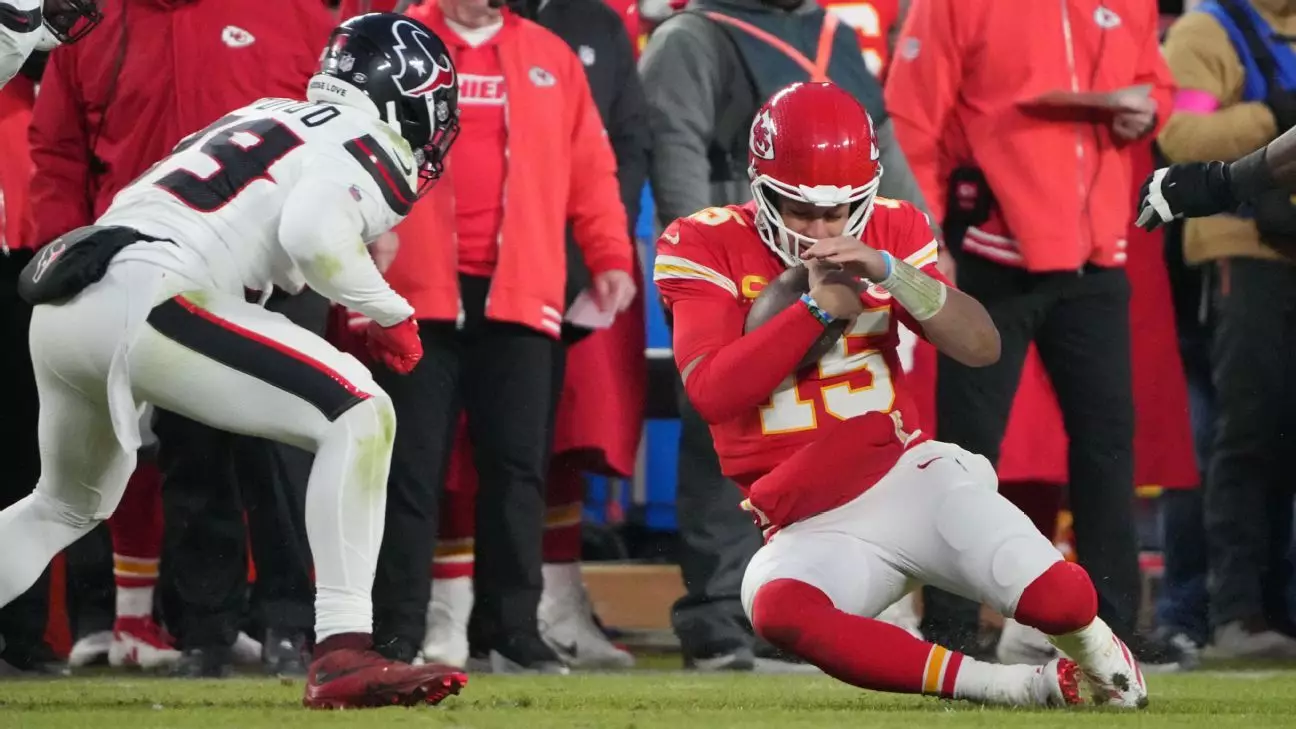The National Football League (NFL) has continually sought ways to enhance the fairness and accuracy of its officiating, a challenge that becomes particularly evident in high-stakes games. One significant step towards this goal was the introduction of replay assist in 2021. By allowing designated officials to review specific plays, the league aimed to reduce human error and provide clearer resolutions to contentious rulings. However, as the technology and rules evolve, discussions arise about the implications of these changes on player experience, officiating credibility, and, more generally, the flow of the game.
With an eye towards refining the officiating process, the NFL is considering expanding the replay assist program to include more scenarios, particularly actions involving quarterbacks, such as the quarterback slide. Currently, replay assist is utilized only in limited situations when there is clear and indisputable evidence available in game footage—such as determining the spot of the ball or the nature of a penalty. However, the reported potential for incorporating elements like unnecessary roughness or intentional grounding could lead to a new level of scrutiny for quarterback actions and interactions with defenders.
Given the rising concern over how the league interprets hits on quarterbacks and receivers, many within NFL circles advocate for a more comprehensive review system that covers these critical aspects more transparently.
Increased attention around officiating practices has been especially focused on Kansas City Chiefs quarterback Patrick Mahomes. Following a controversial moment in a recent playoff game where Mahomes was called for unnecessary roughness, pundits like Troy Aikman have voiced concerns regarding the treatment of quarterbacks. Aikman’s claim that Mahomes appeared to evade defenders while being afforded protection has sparked questions about the fairness of this perceived favoritism.
These moments reflect a broader conversation in professional football about the disparity between the protection athletes, particularly quarterbacks, receive versus that of traditional players. The evolution of the game suggests that while quarterbacks are pivotal, they also face strategic hurdles as defenders adapt their tactics in response to these protective measures.
The reactions from players following such calls cannot be overlooked. Texans defensive star Will Anderson Jr. expressed the frustration and challenges faced when it seems that decisions favor the quarterbacks. Anderson’s sentiments underscore the need for players to feel confident that officiating is consistent and fair throughout the game.
Mahomes himself has countered by emphasizing the dedication of referees. He argues that the intention of officials is to call the game justly, recognizing that judgment calls can vary. This perspective is vital in maintaining respect for officiating bodies amid changing standards and heightened scrutiny from fans, analysts, and teammates alike.
As these discussions gain momentum, the NFL’s competition committee will convene to examine these potential rule changes. The committee’s deliberations will include evaluating the effectiveness of integrating more replay assist scenarios, especially concerning quarterback-related penalties. Their discussions are vital as they set the framework for how the game is officiated and perceived on a national level.
This year’s discussions will occur in a context shaped by fan engagement and demands for transparency. With increasing access to game footage via various media platforms, the audience frequently scrutinizes the decisions made on the field. Hence, the league faces an ongoing challenge in ensuring consistency and fairness without compromising the fluidity of the game.
The evolution of replay assist within the NFL signifies an ongoing journey toward improved officiating practices that balance the need for accuracy with the inherent dynamic nature of the sport. As the league opens the door for discussions around further enhancements to this system, the stakes are higher than ever. The feedback from players, coaches, and fans highlights the complexities involved in implementing such systems effectively. Ultimately, the decisions made will shape how the game is played and perceived, reinforcing the importance of continual assessment and adaptation in the pursuit of fair play in professional football.

